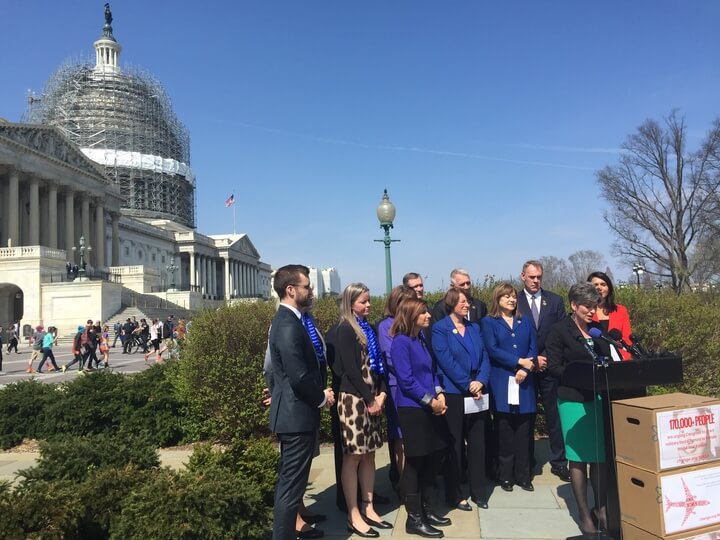WASHINGTON — Take grandmothers, World War II vets and Congressional Gold Medal winners and you have three groups that should be universally popular. So a combination of all three must be a political slam dunk right?
Well that’s the hope of a bipartisan group of senators and House members who announced a plan Wednesday to push the Army to again allow members of the World War II Women Airforce Service Pilots, or WASPs, to have their ashes placed at Arlington National Cemetery.
“They paved the way for people like me to be able to move forward and be able to be a combat pilot,” said Rep. Martha McSally, R-Calif., one of the sponsors of a bill to restore the honor. “These women were pioneers — these women were heroes and personal mentors to me”
WASPs were not initially considered active duty military. But in 1977 Congress retroactively reversed that – for the next 38 years some of the women were laid to rest at the cemetery.
Last year then Secretary of the Army John McHugh changed that policy and ruled WASPs were not eligible for inurnment, saying that 1977 law only applied to their status with the Veterans Administration, not the Army – which runs Arlington National Cemetery.
For the WASPs that decision was a “surprising slap in the face,” said Katherine Landdeck, a professor at Texas Woman’s University who is writing a book about the group
The lawmakers said they have been trying to get the Army to internally change rules that prevent the women from being laid to rest at Arlington. But if it doesn’t happen they will makes changes through legislation.
With most of the Army’s pilots overseas flying combat missions during World War II, the WASPs transported aircraft and personnel around the United States, test piloted repaired planes and helped train anti-aircraft gunners. The 1,100 women who served flew more than 60 million miles; 38 of them lost their lives on missions or in training. As a group, they were awarded the Congressional Gold Medal in 2010.
Appearing with McSally and other lawmakers was the family of Elaine Harmon, a WASP who had hoped to be laid to rest at Arlington but who died a month after the Army changed the rule.
“My grandmother would say: ‘I can’t believe you’re making such a fuss over this, you can just put my ashes over there in the park,’” said Erin Miller, Harmon’s granddaughter. “However I know for the WASPs as a whole she would want everyone to make sure that the WASPs are recognized as veterans in Arlington Cemetery and honored for the role that they played.”
The twin bills have 29 cosponsors in the Senate and 181 in the House, so Landdeck said she’s hopeful they will become law.
“If you talk to any of the modern women aviators, they all look to the WASPs as the women who broke through for them and showed them it can be done,” she said. “I think to correct this and to have Congress write a law specifically for them saying you really are eligible, we really do recognize you, would be a final thank you.”

